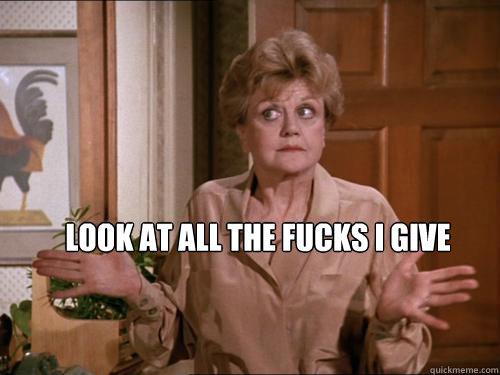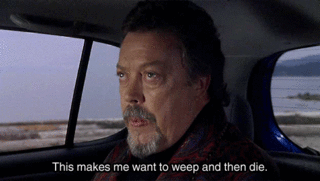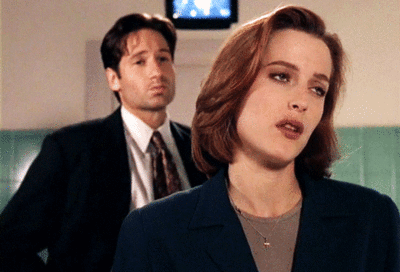Part One is located here.
To recap, we are talking about hard truths in promoting your self-pubbed book.
Experiment with different promotional ideas and then stick with what you love.
A lot of newly published writers make the mistake of setting up accounts on every social media platform thinking they’ll have some kind of huge base when they have a book to sell, but the reality is that you’ll be stretched too thin to be effective at any of them. (Note: I have profiles everywhere but that’s to grab my name before someone else does in case I use it in the future.) If it’s a site that makes it easy to follow you that can auto-update, great! Like my blog auto-updates on Facebook even though I hate Facebook and never use it, so the handful of people on there can keep up with me. But I have no interest in Tumblr, so I don’t do anything there. I naturally prefer Twitter, so that’s where I do the bulk of my socializing.
And yes, you need a website.
You don’t need to blog if you don’t like blogging. But drop a little money on a proper domain name (using your writer name because that’s the thing people are going to google–www.yourname.com, or www.yournamebooks.com if your name is taken) and have a nice, easy to read website that’s mobile-friendly. Keep an updated list of books for sale. Have links to by, excerpts, and ways for readers to contact you. Have a simple mailing list.
You’re on Facebook? Great, but not all of your readers are. Same with every other social network. HAVE A WEBSITE.
Ads and Reviews
Ads? No one’s going to buy a book from an ad so cut out your expectations immediately. Ads are effective because of repetition. It takes fifteen* exposures to something before people remember it. That’s why, when you’re watching TV, you get annoyed by seeing the same commercial twenty times in a row and swear you’ll never buy that car, but later when you’re looking at vehicles, you will remember that brand. So a lot of ads in targeted places can raise your profile and make it more likely that, when the customer is looking at books in the future, she will pick up yours. Or if you’re advertising a really good sale or freebie, that will get you clicks. But you can’t throw up one ad and expect to sell a bazillion books.
Reviews? Basically, there are two types: the ones that appear on external sites, and ones that appear within the bookstore system (like on Amazon).
External reviews are effective if you either get them in high profile places (like trade journals) that libraries and booksellers look at when deciding on stock, or on a high traffic, established blog with a lot of followers. Reviewers who have built up a reputation with their followers can sell a book, sure, but they get a lot of review requests so there’s high competition. The other external review sites, the ones a lot of small publishers use, are likely not going to sell books unless you book some kind of guest event there–the handiness of those reviews is so you have something to put on your website or advertising material.
Reviews on store sites, on the other hand, can be very useful. Whether good or bad, a high number of reviews triggers better exposure. More popular books come up in search results first, they might go out in an Amazon email to customers.
As a self-published author, you are likely not going to get big reviews from trade journals or papers. You may also find certain doors closed to you with popular book bloggers. If you’re going to offer books for review, I’d say your best bet is to get people who review on Amazon and the like (rather than their own obscure blog or just Goodreads). More reviews on Amazon will probably be effective, good or bad.
Another note about reviews…
You are going to get bad ones.
Sometimes deserved. Sometimes not. Sometimes they’ll be right. Sometimes they’ll be wrong. Sometimes they’ll be trolls. Sometimes people will deliberately create Goodreads profiles just to one-star all your books, even ones you haven’t written yet.
Get over it.
Do not attach your worth as a writer to your Goodreads ranking; on that path lies madness. And don’t respond to reviews. (I politely thank people for reading but if you’re not comfortable doing that, then don’t.)
Yes, I know, sometimes they hurt your feelings. But a couple of people not liking your book are not “bullying” you. A couple of people one-starring your books are not “bullying” you. Everyone gets bad reviews and if it cripples you too much to keep writing, you need to find another job.
Be wary of free.
Offering books free is less effective now than it was even two years ago, and then it was less effective than two years before that. Now everyone has a book and everyone’s offering it free hoping people will love it and tell all their friends. Free isn’t special anymore.
Here’s the thing about free: the book loses priority with the reader. I am more likely to read a book I’ve paid good money for than one I just got free on Amazon. Remember that bit about selling your book on being worth the readers time? It’s not just getting the book in their hands, it’s getting them to want to read it.
If you’re doing any kind of free promotion, make it a big deal. Two years ago, I got my rights back and re-published my books myself. I set the first in the series, Bloodlines, to be free for five days on Kindle. My blogger friend Mel set up a promo blitz where I was visiting like 2-4 blogs a day during that week to advertise the freebie and the rest of the series. I also got listed on all the free promotional sites I could.
Bloodlines ended up moving 10 000 free copies. I knew to expect a retention rate of around 2%, and sure enough, in the following weeks about 2-3% went on to buy all the other books. Within six months that number grew more as people got around to reading their freebie, and sales trickled in for Bloodlines too.
The books did far better than they ever had in small press, and the key was having the prices under my control. All in all, that was a fairly effective promotional tactic for not investing any money. But if I hadn’t had that tour blitz, and if I hadn’t gotten the book advertised with all the free book listings, the volume of units moved would’ve been far, far lower (maybe 100? 200? if I was just relying on putting it free and doing nothing else) and sales of the other books far, far lower as well.
Free is also more effective if it’s the first book in a series (of at least three to four books). You can hook readers to then buy the rest.
Don’t get seduced by the idea that suddenly everyone will grab your book if it’s free–they won’t–and if you continually undervalue your work, it’ll be that much harder to convince anyone your books are worth anything. Your work has value and the key to others seeing it as valuable is if you treat it that way yourself. Make your free campaigns targeted.
———-
Okay, okay, so I’ve got over 2000 words here of me letting the wind out of your sails and I’ve yet to give you any advice for how to actually sell books, right?
Write another book.
I don’t care who you are or what you’re trying to sell: be focused on your next book. In fact, stagger things so that as one book released, you’ve got the next up for pre-order. Keep the books coming. That is, hands down, the most effective sales tactic. The more books that are out there, the more your name is out there, the greater the chance readers will discover you and buy your backlist.
I know it feels like you’re swimming upstream, and to be investing in more books when the first hasn’t sold yet, but here’s a little thing I learned in a tax course for writers years ago: the expectation with small businesses is that you’re not going to turn a profit for the first four years. You, the writer, are no different. You’re a small business. It is going to take a while to turn a profit.
Hocking the same book over and over for years is not an effective promotional tactic.
Your first published book is probably not going to sell well when you’re self-publishing. Your second, third, and even fourth might not either. But if you choose this path (and let us be clear: it is a choice, no one is holding a gun to your head, so stop fucking whining), you have to be in it for the long haul. Keep writing. Keep publishing. Keep submitting even if you’ve self-published a few.
Limit your social media time. That might sound counter-intuitive given how everyone talks about platforms and promotion on social media, but all those “friends” and followers won’t do you any good if you have little for sale. I honestly shake my head when I pop on to Facebook and see hours’ worth of posts from the same “writers” talking about writing but they haven’t finished a book in five years.
You aren’t going to cut it no matter what publishing platform you choose if you don’t sit your ass down and work.
Write more books. Make them fucking fantastic.
So…I think this concludes Self-Publishing 101 with Mama Bitchstress! I hope you found the posts useful and learned lots of stuff and put it to good use. Also, I hope that if you need help should you decide to self-publish, that you hire me, because I really like money.
If you have a question that I haven’t answered, leave a comment or send an email through our contact form! If I get some questions, I’ll do an Ask Mama Bitchstress and try to answer.
*Could be more or less, I don’t remember. You get the picture.



Hi ELEW;
Great post!
Thanks.
TFP